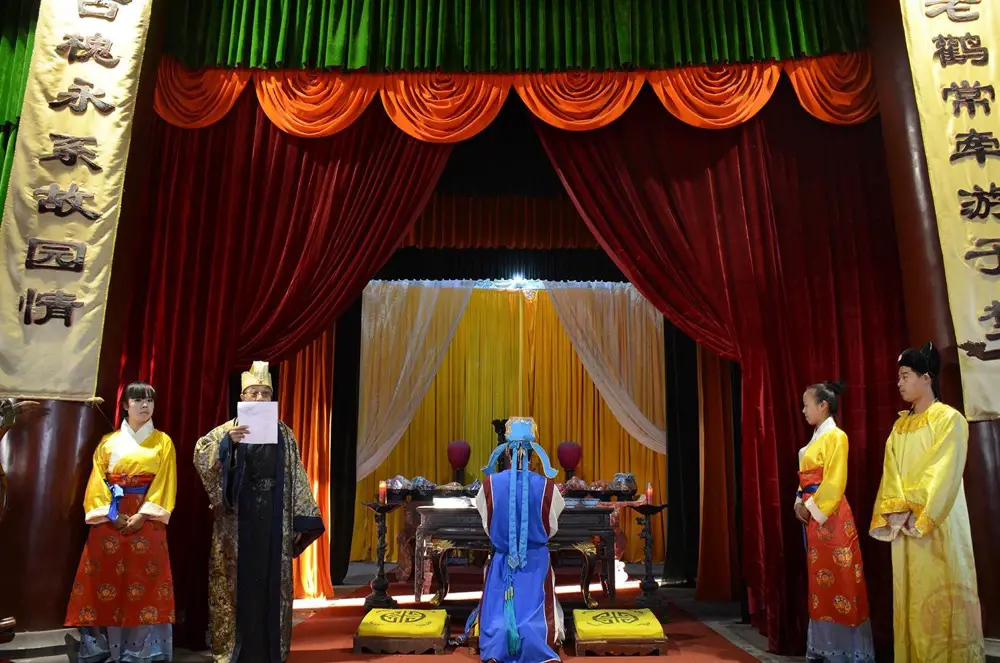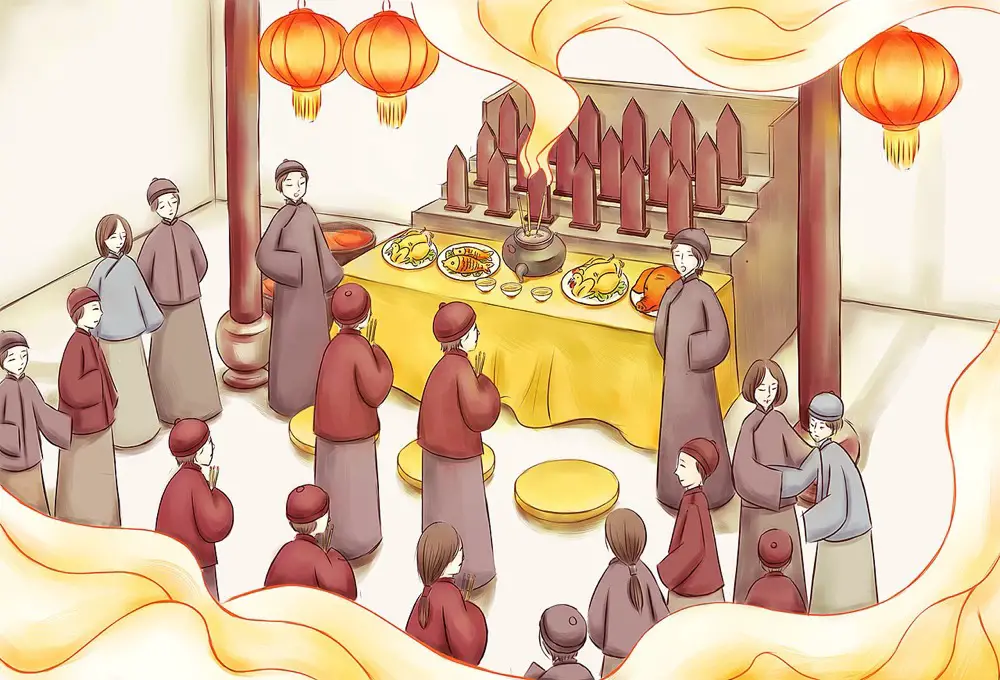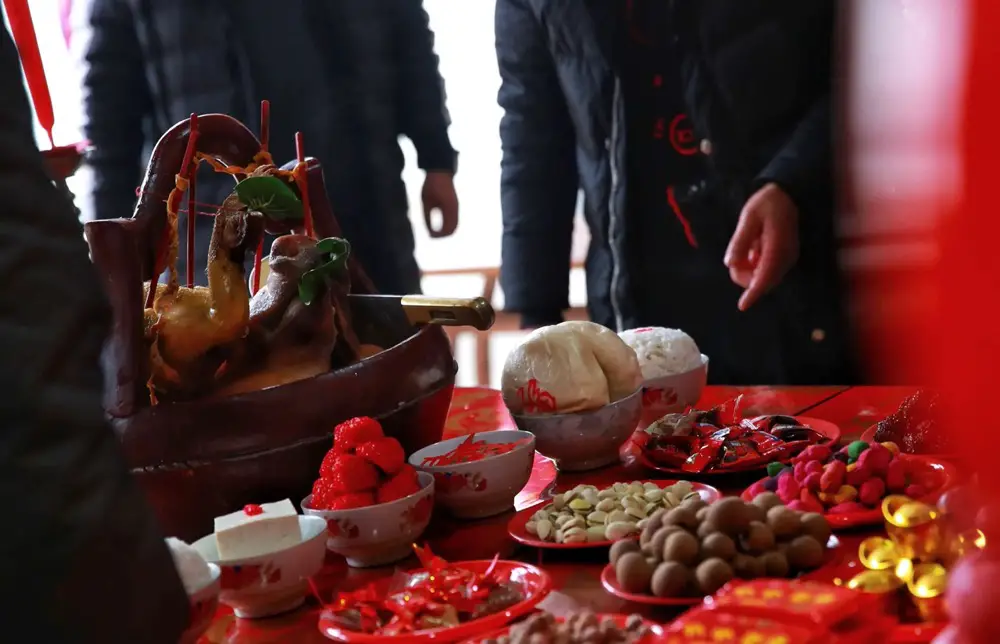One of the cultures with numerous gods is the Chinese culture, despite being widely known as atheists. In Chinese culture, worship is accompanied by many traditions and rituals, with one of the most common forms of worship being ancestor veneration. So, what is ancestor worship in China? Why do the Chinese worship their ancestors? What offerings are made to the ancestors? What other gods do the Chinese worship? To learn the answers to these questions and discover much more about Chinese ancestor veneration, continue reading.
What is ancestor worship in China?

Chinese ancestor worship is part of the traditional Chinese religion that involves worshipping and celebrating glorified or deified individuals who have passed away. This form of worship is also known as Chinese ancestor veneration or Chinese traditional patriarchal religion. Ancestor veneration in China is heavily focused on male ancestors as they are believed to carry the family’s bloodline and were the only ones who could pass down surnames. Today, ancestor veneration is still practiced among the Chinese though not as widespread as during ancient times.
Why do the Chinese worship their ancestors?

The Chinese worship their ancestors because they strongly believe that the departed are transformed into spirits powerful enough to bring prosperity or suffering to a family. Therefore, worshipping ancestors keeps them happy and shows them that they aren’t forgotten. This is also why the dead were traditionally buried with furniture, bronze vessels, and pottery in their tombs.
In Chinese culture, the family is viewed as a unified group of living and the dead. Ancestor worship is, therefore, a way of maintaining the ties between the family’s ancestors and the living. It is believed that the dead continue to exist and they protect and watch over the living family members. The Chinese also worship their ancestors to fulfill their filial duties and cultivate kinship values like family loyalty, lineage, and continuity.
Chinese ancestor worship altar
The altars for ancestor worship in China are usually in the home’s living area, or temples dedicated to ancestors called ancestral temples. At home, the altar for ancestor worship is equipped with “spirit tables,” incense, photos or statues representing the ancestors, and offerings, including food. Today, most homes that practice this worship have black-and-white photos of the departed on the altar.
Altars at home signify unity and the family’s lineage. This altar is respected and cared for as a sign of honor to the ancestors. After a family member’s funeral, an ancestral tablet is placed on the altar alongside the other ancestors to symbolize the unification of the recently departed and the ancestors.
Chinese food offerings for the dead

One of the offerings offered to ancestors in Chinese culture is food and drinks. Different regions offer various meals, and all these meals held various meanings in ancient China. The food offered was generally a mix of everyday meals, treats, and special meals typically served on special occasions. Alcohol was, and still is, one of the drinks offered to ancestors.
Foods offered include; rice, tofu, bean sprouts, peanuts, Jai (a vegetarian meal), roasted pig, duck, huat kueh (steamed cakes), rice cakes, biscuits, buns, fruits, and chicken. Drinks offered include; wine, beer, and tea. Incense was stuck among the food, and it was believed that as the smoke wisps, the ancestors were summoned. These meals and drinks were a gesture of welcoming the ancestors and uniting with them.
What gods did the Chinese worship?
In ancient China, there were over 200 gods and goddesses, but if all the spirits and deities being worshipped were counted, this number would be over a thousand. The following are some of the most popular gods and goddesses worshipped by the Chinese;
- Jade Emperor, also known as Tian di or the Yu Huang da di: The highest-ranking, foremost god in charge of law, justice, order, and creation.
- Zao Shen, a.k.a the kitchen god: The god believed in protecting families and overseeing household operations. He was worshipped to relay a positive message about the family to the Jade Emperor for good fortune.
- Caishen: The god of wealth is also referred to as Ts’ai Shen, who was and still is being worshipped to bestow riches to the worshipper.
- Xiwangmu: The goddess of immortality and the queen of the everliving spirits, also called the Queen Mother of the West, who was believed to reward people with eternal life and punish the wrongdoers.
- Yan Wang: The god of death is believed to oversee the judgment of souls and is the ruler of the afterlife.
- Guanyin: The goddess of mercy and compassion commonly worshipped by sailors and fishermen to guide and guard them.
How do the Chinese worship?
The Chinese worship their ancestors in several ways, for instance, by burning incense before the altar. The Chinese also worshipped by giving the ancestors offerings of food, drinks, and spirit money (incense money). The eldest male of the household typically leads the worship session and makes all the significant announcements before the ancestors’ altar. Also, individual meditation and prayer were considered forms of worship and still are to date.
When do the Chinese pray?
Individual prayer to the ancestors is made at any time. Additionally, the Chinese prayed during essential occasions like funerals, weddings, childbirth, and Chinese New Year. The purpose of the prayer varied depending on the occasion.
Where do the Chinese worship?
Chinese ancestral worship is done in altars either in ancestral temples or at home. Ancestral altars consist of pictures or statues of the deified ancestors to which the worshipper pays their respects and presents their prayer. A common factor in all ancestral altars among the Chinese is the presence of ancestral tablets.
Conclusion
Ancestor worship was a common and crucial practice in ancient China, but today, although it’s still practiced, it’s not as widespread as it used to be. Ancestor worship was carried out in various ways and showed respect and honor to the departed family members.